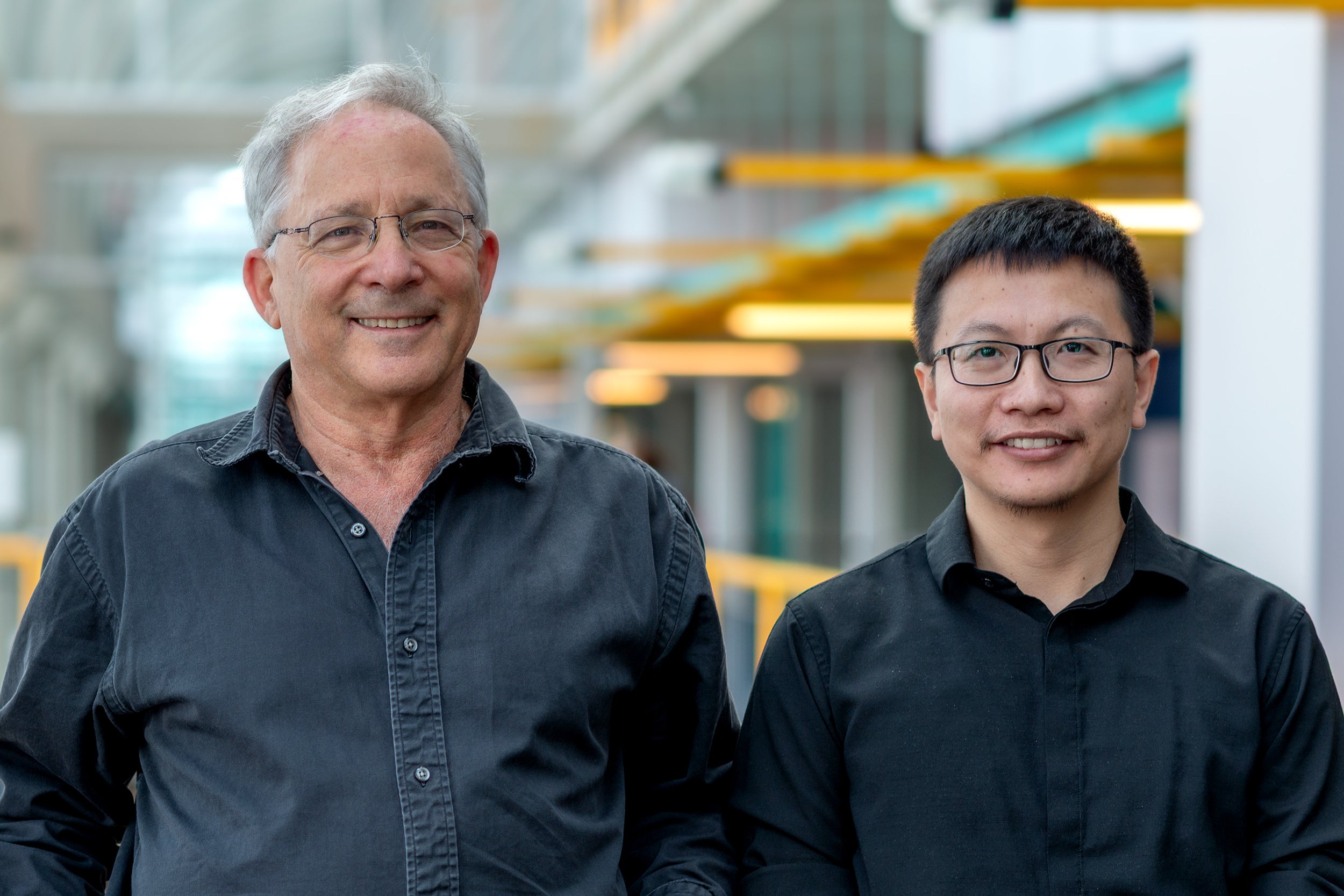Cheriton School of Computer Science Professors Shai Ben-David and Yaoliang Yu have been named Canada CIFAR AI Chairs. They are among the 34 leading researchers in artificial intelligence and machine learning across Canada who form the third cohort of Canada CIFAR AI Chairs announced today.

“Congratulations to the outstanding researchers who are joining the prestigious Canada CIFAR AI Chairs program,” said Dr. Alan Bernstein, CIFAR president and CEO. “Canada and CIFAR have a strong history in supporting AI research and talent, and this program will solidify our position as global leaders in AI.”
Since the program launched in December 2018, a total of 80 Canada CIFAR AI Chairs have been named, securing world-class talent and expertise in Canada.
“AI has the potential to deliver enormous positive social, economic and environmental benefits,” said Dr. Elissa Strome, AVP research and executive director of the Pan-Canadian AI Strategy, CIFAR. “The Canada CIFAR AI Chairs announced today bring diverse perspectives and expertise. Their research will advance AI technologies that are innovative, responsible, equitable and beneficial to society.”
The Canada CIFAR AI Chairs program, a cornerstone of the Pan-Canadian AI Strategy, provides outstanding researchers with long-term, dedicated funding to support their research programs and to train the next generation of AI leaders. Each of the chairs will receive five years of dedicated funding to support research excellence in machine learning.
“Congratulations to Shai and Yaoliang for their being named Canada CIFAR AI Chairs,” said Mark Giesbrecht, Director of the David R. Cheriton School of Computer Science.
“Shai’s research into the foundations of machine learning and artificial intelligence is recognized globally. Recently, he and his colleagues proved that a machine learning problem — whether an algorithm can extract a pattern from limited data — is mathematically undecidable. This work, which links machine-learning problems to inherent limitations of mathematics developed Kurt Gödel in the 1930s, was featured as a front-page article in the inaugural issue of Nature Machine Learning.”
“Since joining the Cheriton School of Computer Science in 2016, Yaoliang’s research has significantly advanced the field of deep generative modelling and artificial intelligence,” said Mark Giesbrecht. “He has divided his research program into several concrete, coherent and interconnected research projects that are appropriate for undergraduate, master’s and PhD students. His approach to training the next generation of computer scientists not only fosters collaboration between members, but it also helps students at all levels of study develop highly coveted skills, knowledge and experience in machine learning.”
Professor Ben-David earned his PhD in mathematics from the Hebrew University in Jerusalem. Over the years, he has held visiting faculty positions at the Australian National University, Cornell University, ETH Zurich, TTI Chicago and the Simons Institute at Berkeley. In 2004, he joined the Cheriton School of Computer Science as a professor. His research interests span a range of topics in computer science theory, including logic, theory of distributed computation and complexity theory. More recently, his focus has turned to machine learning theory. Among his notable contributions in that field are pioneering steps in the analysis of domain adaptation, learnability of real valued functions, and change detection in streaming data.
Professor Yu earned his PhD in computing science, with specialization in statistical machine learning, from the University of Alberta. He joined the Cheriton School of Computer Science in 2016 as an assistant professor and he has been a faculty member of the Vector Institute since 2019. His research focuses on developing efficient, scalable, and robust algorithms for modern machine learning models and applications, with formal theoretical guarantees and analyses. He is also interested in applying machine learning techniques to vision and financial applications.
CIFAR works in close partnership with three national AI Institutes — Amii in Edmonton, Mila in Montréal and the Vector Institute in Toronto in naming chairs for the program. The AI Institutes nominate researchers to the program, and nominations are reviewed by a group of esteemed international reviewers.
The researchers in this latest cohort of CIFAR AI Chairs are based institutions across Canada — École Polytechnique, Google Brain, McGill University, Microsoft Research, Université Laval, Université de Montréal, Université de Sherbrooke, University of Alberta, University of Toronto, and the University of Waterloo’s Cheriton School of Computer Science.
Professors Ben-David and Yu join Professor Pascal Poupart, who was named a CIFAR AI Chair in April 2019.